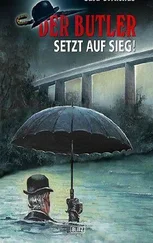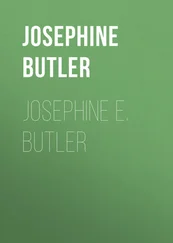Elizabeth Butler - An Autobiography
Здесь есть возможность читать онлайн «Elizabeth Butler - An Autobiography» — ознакомительный отрывок электронной книги совершенно бесплатно, а после прочтения отрывка купить полную версию. В некоторых случаях можно слушать аудио, скачать через торрент в формате fb2 и присутствует краткое содержание. ISBN: , Жанр: foreign_language, foreign_antique, foreign_prose, Биографии и Мемуары, на английском языке. Описание произведения, (предисловие) а так же отзывы посетителей доступны на портале библиотеки ЛибКат.
- Название:An Autobiography
- Автор:
- Жанр:
- Год:неизвестен
- ISBN:http://www.gutenberg.org/ebooks/41638
- Рейтинг книги:5 / 5. Голосов: 1
-
Избранное:Добавить в избранное
- Отзывы:
-
Ваша оценка:
- 100
- 1
- 2
- 3
- 4
- 5
An Autobiography: краткое содержание, описание и аннотация
Предлагаем к чтению аннотацию, описание, краткое содержание или предисловие (зависит от того, что написал сам автор книги «An Autobiography»). Если вы не нашли необходимую информацию о книге — напишите в комментариях, мы постараемся отыскать её.
An Autobiography — читать онлайн ознакомительный отрывок
Ниже представлен текст книги, разбитый по страницам. Система сохранения места последней прочитанной страницы, позволяет с удобством читать онлайн бесплатно книгу «An Autobiography», без необходимости каждый раз заново искать на чём Вы остановились. Поставьте закладку, и сможете в любой момент перейти на страницу, на которой закончили чтение.
Интервал:
Закладка:
“Lots of people at 1 o’clock table d’hôte : staring Prooshan officers in ‘wings’ and whiskers, more or less tightly clad, talking loud and clattering their swords unnecessarily; swarms of English and a great many honeymoon couples of all nations. It was very hot when we left to dive into that glorious region we had seen from the Chartreuse. Those were golden hours on board the Lorelei . But more ‘spoons’; more English; more Ya-ing natives and small boys always in the way, and so we paddled away from beautiful Coblenz, and very fine did the ‘Broadstone of Honour’ look as we left it gradually behind. And now we began again the castles and the villages, the former more numerous than below stream. Happy Mr. Moriarty to possess such a castle as Lahneck; and then the beautiful town below, and the gorgeous wooded steep hills and the beautiful tints on the water. Golden walnut trees on the banks and old church towers – such rich loveliness gliding by perpetually. The towns are certainly half the battle; they add immensely to the scene. Rhense was the oldest town we had yet seen, and the old dark walls are crumbling down. Such bits of archways, such corner bits, such old age-tinted roofs! I must not pass over Marksburg, the most perfect old castle on the Rhine, quite unaltered and not quite ruinous, as it is garrisoned by a corps of Invalides. It therefore looks stronger and grander than the others. Below the cone which it crowns nestled the inevitable picturesque town (Braubach) upon the shore.
“Soon after passing this beautiful part we rounded another old village and church on our right, for the river takes a great bend here. Of course, new beauties appeared ahead as we swept round, soft purple mountains, one behind the other, and hillsides golden with vines and walnut trees. And then we came to Boppart, in the midst of the gorge, one of the most enchanting old walled towns we had yet seen, with a large water-cure establishment above it upon the orchard slopes of the hill. Then the old castle called ‘The Mouse’ drew our attention to the left again, and then to the right appeared, after we had passed the twin castles of Sternberg and Liebenstein, or the ‘Brothers,’ the magnificent ruin of Rheinfels above the town of St. Goar in the shadow of the steep hill. How splendidly those blasted arches come out against the sunny sky! Then ‘The Cat’ appeared on our left, supposed to be watching ‘The Mouse’ round the corner; then, with the last gleam of the sun upon it, appeared the castle of ‘Schönberg’ after we had passed the Lorelei rock, tunnelled through by the railway, and hills glowing in autumn tints. Sunset colour began to add new charm to mountains, hills, and river. Two guns were fired in this part of the gorge for the echo. It rolled away like thunder very satisfactorily. Gutenfels on its rock was splendid in the sunset, with the town of Caub at its feet, and the curious old tower called the Pfalz in mid-stream, where poor Louis le Débonnaire came to die. I can hardly individualise the towns and their over-looking castles that followed. There was Bacharach, with its curious three-sided towers and church of St. Werner; then more castles, getting dimmer and dimmer in the deepening twilight. The last was swallowed up in the night.”
I need not dwell on Bingen. I see us, happy wanderers, dropping down to Boppart, to halt there for very fondly-remembered days at the water-cure of “Marienberg,” which we made our habitation for want of an hotel. Being there I did the “cure” for nothing in particular, but was none the worse for it. At any rate it passed me as “sound” after the ordeal by water. The ordeal was severe, and so was the Spartan food. To any one who wasn’t going through the water ordeal the Spartan food ordeal seemed impossible. But soon one got to like the whole thing and delight in the freshness of that life in the warm sunny weather. We both accepted the “Grape Cure” with unmixed feelings – 2 lbs. each of grapes a day; and even the cold, deep plate of sour milk ( dicke milch ), sprinkled with brown breadcrumbs, and that kraut preserve which so dashed us at our first breakfast, became rather fascinating. We took our pre-breakfast walk on four glasses of cold water, though, to wet our appetites. I see now, in memory, the swimming baths, with the blue water rushing through them from the hills, and feel the exhilaration of the six-in-the-morning plunge. Oh! la jeunesse! La joie de vivre!
They had dancing every Thursday evening in what was the great vaulted refectory of the monks before that monastery was secularised. One gala evening many people came in from outside. The young ladies were in muslin frocks, which they, no doubt, had washed themselves, and the ballroom was redolent of soap. The gentlemen went into the drawing-room after each dance and combed their blond hair and beards at the looking-glass over the mantelpiece, having brought brush and comb with them. The next morning I was very elaborately saluted by a man in a blouse, driving oxen, and I recognised in him one of my partners of the evening before who had worn the correct frac and white tie. What a strange amalgamation of democracy and aristocracy we found in Germany! The Diary tells of the music we had every evening till 10 o’clock and “lights out.” My mother and one or two typical German musical geniuses – women patients – kept the piano in constant request, and the evenings were really very bright and the tone so homely and kind. Kindness was the prevailing spirit which we noticed amongst the Germans in those far-away days. How they complimented us all on our halting German; how the women admired our frocks, especially the buttons! I hope they didn’t expect us to go into equal ecstasies over their own costumes. We sang and were in great voice, perhaps on account of the “plunge baths,” or was it the “sour milk”?
A big Saxon cavalry officer who was doing the cure for a kick from a horse and, being in mufti, had put off his “jack-boot” manners, was full of enthusiasm about our voices. He expressed himself in graceful pantomime after each of my songs by pointing to his ear and running his finger down to his heart, for he spoke neither English nor French, and worshipfully paid homage to Mamma’s pianoforte playing. She played indeed superbly. He was a big man. We called him “the Athlete.” We had nicknames for all the patients. There was “the Sauer-kraut ,” there was the “Flighty,” the funniest little shrivelled creature, a truly wonderful musical genius, who, having heard me practising one morning, flew to Mamma, telling her she had heard me go up to Si and that I must make my name as a prima donna – no less. That Mendelssohn had proposed to her was a treasured memory. Her mother, with true German pride of birth, forbade the union. There was a very great dame doing the cure, the “ Incog ,” who confided her card to Mamma with an Imperial embrace before leaving, which revealed her as Marie, Prinzessin zu Hohenzollern Hechingen. Then there was a most interesting and ugly duellist, who a short time previously had killed a prince. His wife wore blue spectacles, having cried herself blind over the regrettable incident. And so on, and so on.
The vintage began, and we visited many a vineyard on both banks of the rapid, eddying river, watching the peasants at their wholesome work in the mellowing sunlight. Whenever we bought grapes of these pleasant people, they insisted on giving us extra bunches gratis in that old-fashioned way so prevalent in Italy. I record in the Diary one classic-looking youth, with the sunset gold behind his serious, handsome face, bent slightly over the vine he was picking, on the hillside where we sat. He seemed the personification of the sanctity of labour. All this sounds very sentimental to us war-weary ones of the twentieth century, but we need refreshment in the pleasures of memory; memory of more secure times. The Diary says: —
Читать дальшеИнтервал:
Закладка:
Похожие книги на «An Autobiography»
Представляем Вашему вниманию похожие книги на «An Autobiography» списком для выбора. Мы отобрали схожую по названию и смыслу литературу в надежде предоставить читателям больше вариантов отыскать новые, интересные, ещё непрочитанные произведения.
Обсуждение, отзывы о книге «An Autobiography» и просто собственные мнения читателей. Оставьте ваши комментарии, напишите, что Вы думаете о произведении, его смысле или главных героях. Укажите что конкретно понравилось, а что нет, и почему Вы так считаете.












